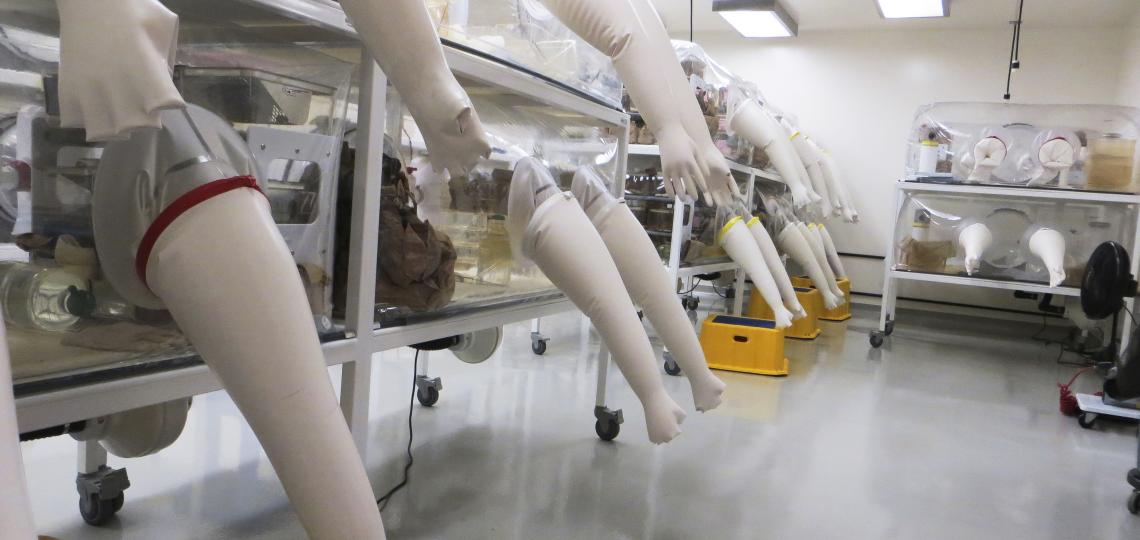
Flexible Film Isolators
The use of isolators facilitates sterile animal housing and manipulation. Core staff are experts in the use of these systems for rodent husbandry and scientific study.
The Baylor College of Medicine Gnotobiotics Core is operated by the Center for Comparative Medicine in support of the college’s microbiome research initiatives. The facility was established in 2013 and the facility’s seven full time employees currently operate over 100 flexible film isolators in support of approximately 25 academic laboratories at Baylor College of Medicine elsewhere in the Texas Medical Center.
We are supported in part by the Texas Medical Center Digestive Diseases Center, an NIH-funded (P30DK056338) digestive disease research core center designed to serve basic and clinical scientists at institutions within the Texas Medical Center, including Baylor College of Medicine, the University of Texas Health Science Center at Houston, and MD Anderson Cancer Center. The facility is part of the center’s Gastrointestinal Experimental Model Systems core.
Our Services
The Gnotobiotic Rodent Facility offers the following services:
- Production of Germ-Free Rodents
- Housing of Gnotobiotic Animals
- Study Development Consultation
- Technical Services
- Creation of Germ-free Lines of Interest
- Training and Outreach
Visit our Services webpage to see details on each service.
Production of Germ-Free Rodents
Germ-free animals are extremely expensive to purchase and ship. To address this issue, we maintain breeding colonies of germ-free animals and provides these to investigators at cost. This removes significant cost and logistical barriers to studying the microbiota in these models.
Housing of Gnotobiotic Animals
Gnotobiotic animals require specialized housing in order to ensure their sterility or prevent contamination by unwanted microbes. We primarily utilize flexible film isolators for animal housing and have over 80 units in operation. Other housing methods, such as individually ventilated cages designed for bioexclusion, are also used. We are capable of performing studies at ABSL-1 or ABSL-2.
Animal maintenance requires continual verification of sterility or freedom from contamination. We utilize a combination of microbial culture and molecular methods to verify microbial status
Study Development Consultation
We assist investigators, where needed, in study design. Our primary goal is to facilitate understanding of the technical challenges and operational limitations of working with these models. Thoughtful study planning assists in minimizing contamination risk and ensuring that study objectives are met.
Technical Services
Facility staff perform technical manipulations for studies involving gnotobiotic rodents. Their experience and training allows them to perform difficult tasks (such as tail vein injections) within isolators. This lowers the inherent risks of this work and provides an important service to the research community. Technical time is competitively priced at recovery rates.
Creation of Germ-free Lines of Interest
We can make existing mouse strains germ-free using standard rederivation techniques. This allows us to provide unique genetically modified lines that support the work of individual investigators.
Training and Outreach
We are committed to assisting other institutions with established or developing gnotobiotics programs. We have provided program development assistance and hands-on training to several institutions and maintain strong collaborative relationships with facilities in our region.








